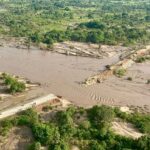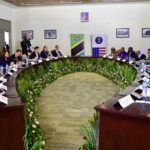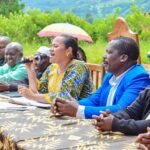In a significant move towards enhancing the quality of life in rural Tanzania, the Deputy Minister of Energy, Hon. Judith Kapinga, has unveiled the government’s comprehensive strategy for providing electricity to underserved areas. This ambitious plan, spearheaded by the Rural Energy Agency (REA), is set to transform the energy landscape of mainland Tanzania. It will ensure that even the most remote villages gain access to reliable electricity.

The Rural Electricity Distribution Project: A Phased Approach
The Rural Electricity Distribution Project represents a pivotal element of Tanzania’s rural electrification strategy. Its implementation is occurring in a meticulously planned sequence of phases. The phased approach is designed in a systematic manner to extend electricity services to all villages that currently lack access. This will foster economic growth, improve healthcare and education, and enhance overall living standards.
Phase One: Laying the Foundation
The preliminary stage of the project is concerned with the establishment of the requisite infrastructure to facilitate the widespread electrification process. This encompasses the construction of transmission lines, substations, and distribution networks. The government’s strategy is to prioritise areas with the greatest potential for economic development, with the intention of creating a ripple effect that will stimulate local economies and attract investment.
Phase Two: Expanding Reach
Building on the foundation established in the initial phase, the subsequent phase seeks to extend the reach of electricity services to more remote and underserved areas. This entails the extension of transmission lines and distribution networks to encompass a more extensive geographical area. Particular emphasis is placed on regions with substantial agricultural and industrial potential, as the provision of electricity is anticipated to enhance productivity and generate new prospects for local communities.
Phase Three: Ensuring Sustainability
The third phase of the project is dedicated to the assurance of the long-term viability of the electrification initiatives. This encompasses the implementation of measures to maintain and upgrade the infrastructure, as well as the promotion of renewable energy sources. The government’s objective is to reduce dependence on fossil fuels and promote environmental sustainability by integrating solar, wind, and hydroelectric power into the rural energy mix.
Challenges and Solutions
Although the Rural Electricity Distribution Project offers significant potential, it is not without its inherent difficulties. One of the primary obstacles to the implementation of the Rural Electricity Distribution Project is the high cost of infrastructure development, particularly in remote and sparsely populated areas. To address this, the government is investigating a range of potential financing solutions, including public-private partnerships and international aid.
Another challenge is the necessity for a skilled workforce to implement and maintain the electrification infrastructure. To address this, the government is investing in training programmes with the objective of developing a workforce capable of supporting the project. Furthermore, initiatives are underway to engage local communities in the planning and implementation process, with the objective of ensuring that the project aligns with their specific needs and priorities.
Impact on Rural Communities
It is anticipated that the Rural Electricity Distribution Project will have a profound impact on rural communities. The provision of electricity will facilitate the establishment of small businesses, generate employment opportunities and enhance access to information and communication technologies. Consequently, this will facilitate enhanced educational opportunities, improved healthcare services, and contribute to overall social and economic development.
Economic Growth and Development
The provision of electricity represents a significant factor in the stimulation of economic growth and development. The government’s objective is to stimulate local economies and reduce poverty by providing reliable and affordable electricity to rural areas. Access to electricity will facilitate the utilisation of contemporary irrigation systems, enhance agricultural yield, and curtail post-harvest losses. Furthermore, it will facilitate the growth of small and medium-sized enterprises, which are of great importance for the creation of employment opportunities and the diversification of the economy.
Healthcare and Education
The expansion of electricity access will have a profound effect on healthcare and education in rural areas. The introduction of electricity to health facilities will facilitate the delivery of enhanced services, including the utilisation of contemporary medical apparatus and refrigeration for vaccines and pharmaceuticals. Schools will also benefit from improved lighting, which will enable students to study after dark and access digital learning resources.
Environmental Sustainability
The incorporation of renewable energy sources into the rural electrification strategy represents a pivotal element of the government’s dedication to environmental sustainability. The project’s objective is to reduce greenhouse gas emissions and promote the use of clean energy by harnessing the power of solar, wind, and hydroelectric energy. This will not only benefit the environment but also reduce the long-term costs of energy production.
Community Engagement and Participation
The success of the Rural Electricity Distribution Project is contingent upon the active engagement and participation of local communities. The government is committed to the active involvement of community members in the planning and implementation process, with the objective of ensuring that their voices are heard and their needs are met. It is anticipated that this participatory approach will engender a sense of ownership and guarantee the long-term success of the project.
Tanzania Media
- Kanyala Ferry Launch: TEMESA’s New Service for 15,000 Sengerema Residents (Mwanza) - 18 August 2025
- Russia-Tanzania Naval Cooperation: How the Smolny Training Ship Boosts Dar es Salaam’s Maritime Security - 18 August 2025
- Tanzania’s ICGLR Commitment: Stabilising the DRC & Great Lakes Region - 18 August 2025



























